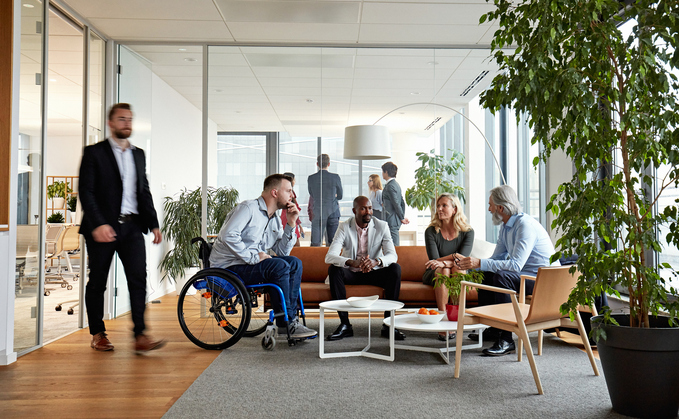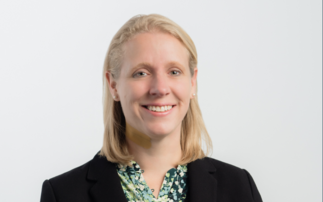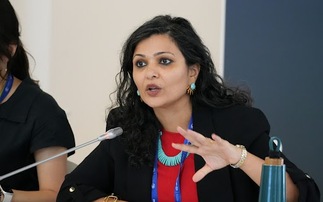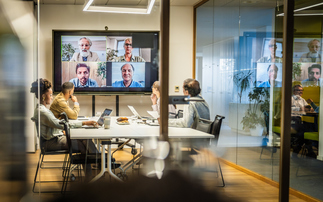
around 21 per cent of Mondi's staff across the group as a whole are women, rising to 30 per cent on its board
Partner Content: Creating a diverse workforce is a challenge, particularly in some historically male-dominated industries, according to Mondi
Gender diversity is no longer a buzz word for the most progressive businesses, and necessary for any business that wants to thrive in a rapidly evolving and sustainably-focused world.
Diversity and inclusion (D&I) makes up a large part of this, which is no surprise given that those businesses that invest in a diverse workforce are also likely to be more environmentally-responsible, with more ambitious climate and environmental strategies. Moreover, a diverse and inclusive workforce allows employees to better adopt greener business practices at all levels.
However, the implementation of diversity and inclusion within business is never a ‘one size fits all' strategy. It is harder for some industries than others to make progress. In the manufacturing industry, for instance, women remain underrepresented, with just 20-30 per cent of employees in this sector in Europe typically being female. Mondi - the world's largest paper bag manufacturer and supplier of packaging solutions to global companies - has ambitious plans to change this.
Delivering a new status quo
Currently, around 21 per cent of Mondi's staff across the group as a whole are women, rising to 30 per cent on its board, but its sustainability strategy for the next decade - MAP2030 - outlines ambitious plans to increase the proportion of female employees across all levels of the group to 30 per cent. Achieving this target will mean for example, that four out of every 10 new hires over the next decade will need to be women.
Frauke Bastians, senior D&I manager at Mondi, explains: "Gender diversity is one of the most prominent issues for us in what has traditionally been a male-dominated industry. The processes and policies we have in place alongside individual behaviour will support our aim towards a better balance."
The firm has various initiatives in place to achieve its goal, including a female leaders network, gender inclusive language training, unconscious bias training, and D&I guidance in recruitment and succession planning. It is also a signatory to the UN Women's Empowerment Principles. These initiatives play an important role to attract and retain talented people regardless of gender, disability or ethnicity and are complemented by country-specific activities at Mondi sites worldwide.
In addition, Mondi has recently introduced a digital HR tool that will allow it to gain more transparency when it comes to assessing the gender and diversity mix of its workforce.
Peter Orisich, CEO flexible packaging & engineering materials, explains changes to diversity across a business cannot be seen as being driven by one single factor but rather a journey that employers want to take all of their colleagues on: "The purpose of our female leaders network is to create an open exchange for women and for them to benefit from the variety of experiences by using a cross-hierarchical approach," he says.
Success stories
It isn't easy, of course. At Mondi, the wider group still has work to do to reach its 30 per cent target at all levels of the organisation, although it does have a number of local success stories that prove that change is possible. One of these is in its Korneuburg factory just outside Vienna in Austria, where female leader Eveline Wagner oversees a team of 280 employees. This location already has 27 per cent female representation, with 40 per cent of women in senior roles and colleagues representing 23 different nationalities.
"Our job as managers is to design workplaces in such a way that people can work for us regardless of their gender or their nationality," Wagner says. "We have already implemented that, and employ a lot of women on the production floor."
For Orisich, the success of this plant in terms of gender diversity is important. One of the group's greatest strengths is the geographic culture and personal diversity of employees. Plants like Korneuburg illustrate how important learning by shared experiences is for the group as a whole.
"We want our colleagues and leaders to hold [a] curiosity for diversity, international challenges, and the willingness to go the extra mile," he says.
Initiatives in action
In practice, implementing this is a long-term journey and change does not occur overnight. The first key step for the firm was to set D&I targets as part of its MAP2030 roadmap, which aims to "build a culture where everyone feels safe and comfortable to speak their mind, and where discrimination has no place".
Its internal work is being supplemented via collaboration with external partners. One example is Mondi's cooperation with Female Factor, a global community aiming to enhance the careers of female leaders, which offers opportunities to female employees within the group.
In addition, at its Group office in Vienna, Mondi has partnered with myAbility, an Austrian social business that brings together companies and individuals with disabilities in order to foster more inclusive workplaces. Through the myAbility talent programme, students shadow Mondi colleagues at work, to raise awareness on how to build an inclusive and diverse environment, while the students gain first-hand experience and contacts to build their future careers.
Moving forward, Mondi has its sights firmly set on an inclusive future, where it is able to leverage the strengths and experience of a diverse global workforce to retain a leading position in the packaging and paper manufacturing sector by 2030 and beyond.
This article is sponsored by Mondi.






